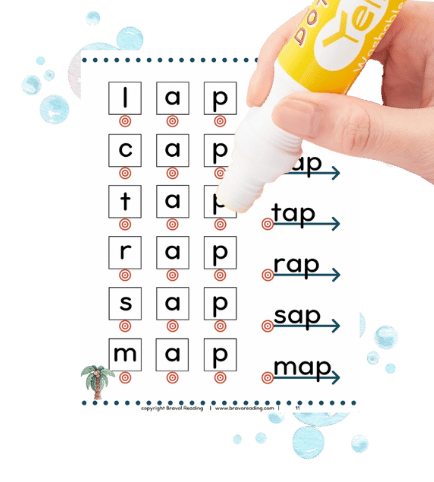The Astonishing Impact Of Bad Reading Habits On Performance
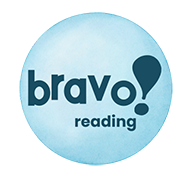
Reading habits are really important for excellent reading skills. But kids with dyslexia can drive you nuts when they engage in them.

“Dinosaur.”
The word is clear as day.
But your child reads it as “dinner”.
Well, the first three letters are the same. But after that…the words differ.
A lot!
Why did this happen?
Most likely, your child just has bad reading habits.
Reading habits play a crucial role in shaping your child’s academic performance and overall literacy skills. Most people think that reading habits simply involve how often you pick up a book and read. Or perhaps it’s thought that time on task or focus on reading constitute reading habits.
Of course, these assumptions are right.
But…there’s more to reading habits than simply picking up a book and reading it at regular intervals.

This is especially true for kids with dyslexia, since they learn differently than others. That doesn’t mean they aren’t smart. By definition, kids with dyslexia have average or above average intelligence.
The problem with dyslexia is that it makes decoding words a difficult process. There are many reasons for this, and sadly, most kids with dyslexia fail to get the proper help they need so decoding is an easy process. Even worse, by the time they usually do get help, they have poor reading habits.
There are three main bad reading habits that kids with dyslexia engage in. But don’t despair if you see your child’s reading abilities crop up as you learn about these reading habits. Like any bad habit, it can be stopped if the right methods are used – often in as little as three weeks!
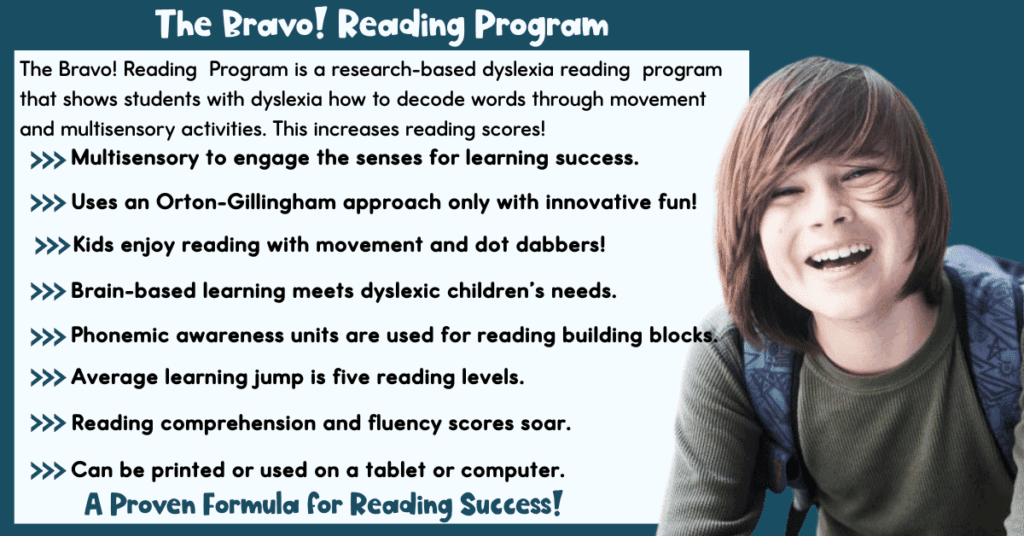
Poor Reading Habit Don’t Have To Rule Your Child’s Life!
Decoding is the backbone of reading. It is the process of translating print into speech by quickly matching a letter or combination of letters to their sounds. In addition, to decode you must be able to recognize the patterns that make syllables and words.

More simply put, decoding is the process of sounding out words.
Children with dyslexia struggle to decode words. It’s as if decoding is like a foreign language to them. And to make matters worse, these kids are usually only provided with traditional reading programs that cater to the masses instead of being given reading programs that make sense to them – programs that speak their “learning language”.
Since decoding is so hard for kids with dyslexia, they often resort to bad reading habits. It’s not that they can’t do the activities asked of them. It’s that the activities weren’t taught in a way they can understand. Panic sets it, and bad habits develop.
Why Kids With Dyslexia Are Left In The Dust
Did you know that twenty percent of children in school have dyslexia? And most of these kids don’t ever receive the kind of help they need. Even if they do qualify for Special Education and receive an IEP (Individualized Education Plan), it’s rarely targeted exercises to improve processing abilities.

Instead, these kids customarily receive a watered-down version of the same traditional reading programs that didn’t work for them all day long.
It’s no wonder that forty-eight percent of our prison population is dyslexic! Not only do bad reading habits set in when kids fail to read!
But here’s the good news. Kids with dyslexia can be taught to decode and to decode well.
The problem is that the wrong approach is taken. We know these kids learn differently, yet traditional programs continue to try to teach kids with dyslexia as if they learned like everyone else! Flashcards, phonics worksheets, and “drill and kill” methods simply do not work for kids with dyslexia.
How Bad Reading Habits Make Your Child’s Future Bleak
If your child struggles to sound out words, then most likely a whole slew of bad decoding and reading habits have set in. This is because your child wasn’t taught the right way from the start.

Kids with dyslexia are usually hands-on or tactile learners. This means they learn by doing instead of seeing or hearing. Since kids with dyslexia are so smart, they often slip through the detection and intervention cracks. By the time someone notices what’s going on, too many bad habits have set in.
Children with dyslexia need to move to learn. That’s because “doing” is their learning language! When forced to learn primarily through visual and auditory means, they shut down. They don’t understand what’s being taught.
That’s when bad reading habits set in.
Skills Mastery: The First Step Toward Excellent Reading Habits
Because teaching methods weren’t correct, from the start, skills were missed. Instead of learning all letter sounds, including long and short vowel sounds, with automaticity, some of the letter sounds weren’t mastered.

When your child goes to read, there’s a pause and it slows down the flow of learning.
Another thing happens. Kids with dyslexia can usually blend one or two letters together, but after that, if not taught correctly, they falter. They sometimes panic at too many letters. Or letters might be reversed, upside down, slanted, moving, or wiggling.
When panic sets in, decoding skills fly out the window, and bad reading habits come home to roost. Kids with dyslexia resort to bad habits. They don’t know what else to do, because they lack strategies to decode words. They’re also usually weak in phonemic awareness, and this causes another big problem.
Instill Level Of Phonemic Awareness For Better Habits
Research tells us that kids with dyslexia do better when they have strong phonemic awareness skills. According to Wikipedia, phonemic awareness is defined as a part of phonological awareness in which listeners are able to hear, identify and manipulate phonemes, the smallest mental units of sound that help to differentiate units of meaning (morphemes).

For decoding to be strong, phonemic awareness must be strong. Decoding and phonemic awareness are linked tightly together. Your child must have the ability to recognize and manipulate phonemes if decoding skills can be used with ease.
Phonemes are any of the perceptually distinct units of sound in our language that distinguish one word from another. They are small units of sound that words are built upon. Examples of phonemes are “ut”, “ag”, “im”, “us”, and “op”. There are forty-four phonemes in our language, and as you add combinations of letters and syllables onto these phonemes, words are built.
Kids with dyslexia understand phonemes. They “get” them instinctively. Yet unless they are taught to become familiar in a way they can understand, they fail to use and manipulate them, and this equates to poor decoding skills. When poor decoding skills are the norm, bad reading habits also become the norm.
Put A Halt To The Downside Of Dyslexia!
Children with dyslexia learn differently than other kids. That means they need unique, movement-oriented activities. This not only holds their attention, but speaks to their learning style.

In addition, kids with dyslexia are hands-on or tactic learners, so it’s crucially important that they use large motor movements to set in skills. In addition, they respond best to brain-based learning and a multisensory approach to learning.
A multisensory approach means that visual, auditory, and kinesthetic means are used for teaching and learning.
If taught to use phonemes with color, large motor movement, pictures, brain-based learning, cross-lateral movement, and a multi-sensory approach, then kids with dyslexia soar. Bad reading habits go by the wayside because desperation isn’t part of the equation. Reading scores are raised. Fluency increases, and reading comprehension climbs.
Grades are improved, because reading is the most important subject of all, carrying over into all subject areas. Bad reading habits are transformed into good reading habits.
The Three Worst Dyslexia Reading Habits: What They Are And How To Demolish Them
If your child has dyslexia or struggles to read in any way, then The Three Pillars of Poor Reading have most likely popped up at one time or another. The Three Pillars of Poor Reading encompasses the three biggest bad reading habits of all.
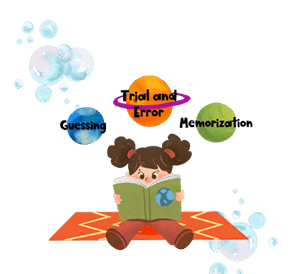
If you’ve heard your child guess at words while reading, stammer, stutter, lack expression, take a long time to read a word, or lack the ability to sound out words, then The Three Pillars have probably reared their ugly heads!
All are simply bad reading habits that can be corrected with the right reading system and the right teaching methods.
Even if your child is older and is deeply embedded in using these bad reading habits, don’t despair! Bad habits can be changed in as little as three weeks!
Replacing Guessing At Words With Strong Reading Strategies
The most common bad reading habit made while sounding out words is guessing at words. This is when your child starts to decode or sound out a word. Since decoding strategies and phonemic awareness are both weak, panic usually sets in. Your child takes a wild guess at the word.
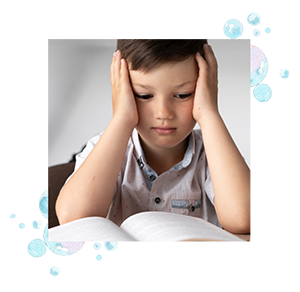
Sometimes, the guess is correct. More often than not, the guess is incorrect.
When your child guesses correctly, the bad habit is reinforced or rewarded. That false positive is just enough to keep your child heavily engaged in the guessing game.
If the word is read incorrectly, someone usually corrects your child. Although the correction is necessary, it’s enough to slow the flow of learning.
There’s a little pause, and fluency scores drop because of it. Attention is taken away from the word, and it takes a split second to get back on task.
Either way, the outcome is the result of more bad reading habits setting in – sometimes for life if proper interventions aren’t taken.
When Panic Set In: Don’t Let Your Child Do This!
Here’s what usually happens when your child guesses at words while trying to decode. Your child will be humming along just fine until…a new word pops up.
A confusing word. One that doesn’t seem to look right, to make sense. Usually, it’s a multi-syllable word, and fear sets in. Your child doesn’t know how to sound it out.

The word has too many letters. Or the letters are wiggling or moving. They look too strange.
So…your child ends up saying the first word that comes to mind – usually a random guess
To decode words, there must be a strategy involved, a way of reading new and unfamiliar words. There must be a system to sound out words or guessing ensues.
Guessing at words directly affects comprehension in a negative way, because the wrong word was read. This changes the meaning of the entire sentence.
Fluency scores are also affected, because wrong words are deducted from fluency scores. There’s also a pause that happens when your child guesses at a word. There is a digging through memory bank process of trying to figure out what that word might be. This impedes not only the flow of learning but also contributes to those stutters and stammers, slowing down your child’s fluency scores.
Stop This Bad Reading Habit Now!
The second Pillar of Poor Reading is memorizing words. This is where your child attempts to memorize words instead of sounding them out or decoding them. Although it doesn’t seem like much of bad reading habit, it can still gum up the works!

At first, this seems like a reasonable strategy, because at least there is a bit of strategy involved here. But it isn’t a very strong one. The reason is that our language has over one million words in it!
That’s a lot of words to memorize!
Of course, we don’t regularly use all of those million or so words. But we do regularly use around thirty thousand words. Even that’s an astounding amount of words for a child to try to memorize.
Memorizing words is difficult for most kids with dyslexia, as they have compromised visual and auditory processing skills to start with.
The Real Truth About Traditional Reading Programs And Dyslexia
This is why flashcards are so hard on kids with dyslexia. Holding up a word on a card and asking them to memorize it without some form of movement or participation makes absolutely no sense to them. They answer wrong time and again. When they do answer correctly, it usually doesn’t stick.

In addition, kids with dyslexia are meaning driven. They rely on meaning to navigate an often “topsy- turvey” world. Kids with dyslexia don’t perceive the world like other kids. Images and sounds are often distorted or skewed. It often takes them longer to process information because of this. And it also makes them cling to meaning.
Meaning is how they navigate their days. These are the kids who love science and thrive on hands-on science experiments yet deflate when told to read a science passage and answer questions about it. They know about the meaning of the hands-on experiment because their hands were involved. But the reading passage has little or no meaning for them.
This desire for meaning is what tricks them into trying to memorize words. They see a word they don’t know and strain for it’s meaning instead of trying to decode it, to sound it out letter by letter with automaticity. Bad reading habits set in quickly!
Automaticity is when your child does something without using conscious thought. It’s an automatic process. The bigger process of reading relies heavily on your child’s ability to use automaticity. Decoding, even more so. Other skills that require automaticity are driving, riding a bike, and typing.
When Mistakes Are The Norm, Bad Reading Habits Sprout!
When decoding skills are weak or missing, your child will grasp at straws, and because meaning is so important, memorizing words and their meanings takes place. But it’s just too hard to learn so many words, and mistakes are made. When mistakes are the norm, bad reading habits flourish.

Once again, reading comprehension and fluency are affected because the words are read incorrectly.
The third Pillar of Poor Reading is using trial and error reading. Trial and error reading is when your child randomly applies reading and spelling words instead of decoding a word letter by letter.
Once again, this doesn’t seem like a big deal, as opposed to guessing at words. With trial and error reading, there is a bit of strategy involved. But this particular pillar is a slippery slope that pulls down kids with dyslexia, and before you know it, those pesky bad reading habits slip in.
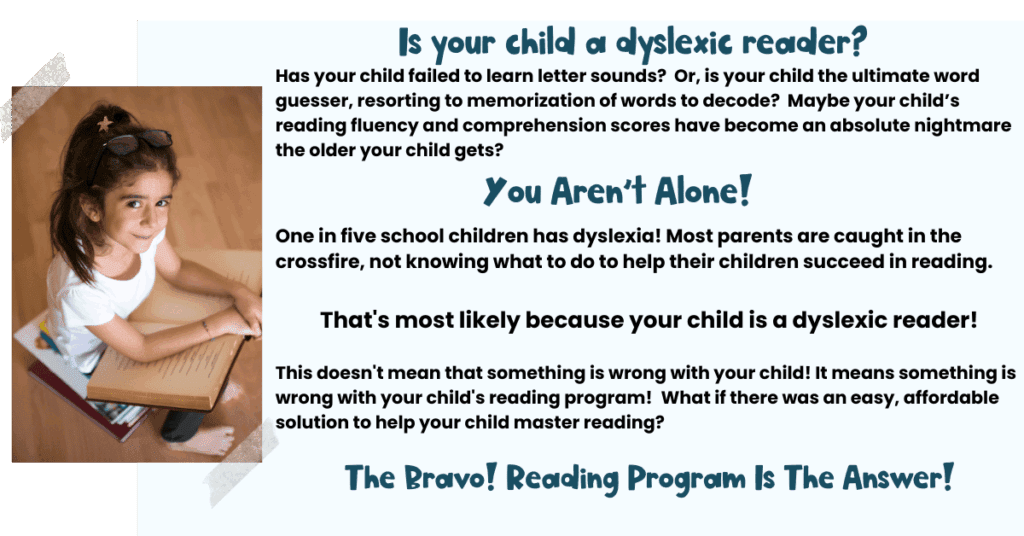
Why Kids With Dyslexia Panic When They Read
When your child starts to decode a word and is weak in decoding skills, then panic sets in. Your child randomly tries another decoding or reading rule that worked in the past. Random is the key word here.

With trial and error reading, there’s no real way of repeating what really wasn’t learned. Your child can’t replicate the rule, because the rule wasn’t actually learned in the first place. It’s a random grasping at straws at all times, applying this rule and that out of sheer desperation.
The problem gets worse because once again, your child receives a false positive when engaging in trial and error reading. When your child gets a word correct using this bad habit, the mistake sets in. Your child is rewarded for learning the wrong way.
It makes your child want to continue doing this again and again, just wildly applying any desperate rules learned along the way in any random place.
When words are read incorrectly, once again reading comprehension and fluency scores are affected in a negative way. Scores drop. Grades plummet. Homework becomes a battle.
How To Fix Bad Reading Habits Forever
Here’s the good news.
The Three Pillars of Poor Reading are just bad habits. Children with dyslexia develop these bad habits when decoding skills are weak.

When they come across words they don’t know how to sound out, they panic and make bad decoding decisions. They guess at words, memorize them, or engage in trial and error reading.
But bad reading habits can be changed.
The first thing your child needs is a reading or decoding program that speaks in a “learning language” that can easily be understood.
This program needs to be rich in large motor movements, cross-lateral movements, predictability, multi-sensory, and uses color, pictures, and brain-based learning.
But this isn’t enough.
How Small Units Of Sound Increase Reading Abilities
The process of teaching the units of sound – phonemes – must be in a specific way. First, letter sounds must be strong – all twenty six letters of the alphabet including long and short vowels. And they must be known with automaticity.
Next, two-letter words need to be mastered with automaticity, too. Traditional reading and decoding programs either fail to teach or don’t spend enough time on decoding two-letter words. This is a big mistake for kids with dyslexia.
Most kids with dyslexia are right-brain dominant. This means they are creative and learn best through pictures, color, rhythm, music, and learn from the “whole”. Because of this, they are weak in the left-brain dominant skill of bit-by-bit thinking.
Bit-By-Bit Thinking Is The Evil Villain Here!
Decoding relies heavily on bit-by-bit thinking, so kids who are right-brain dominant are at an immediate disadvantage. If given the correct way to decode two-letter words, this bit-by-bit thinking isn’t necessary, because the process of knowing how to sound out two-letter words is internalized.
Once these foundational decoding skills are in place, your child is able to sound out three-letter words. This isn’t so hard now that two-letter words are strong. Only one letter is added to the decoding process, but it packs a wallop.
This is the true building of a decoding foundation!
Now your child is able to build onto these basic three-letter words and set the stage to eventually sound out multi-syllable words.
Making It Make Sense With Automatic Response
This is when automaticity in reading sets in and grades soar. Homework quits being a battle because your child has the necessary skills to read directions independently and understand what to do.

Fluency increases because words can be sounded out and comprehension scores are on track because meaning isn’t changed.
When your child decodes the words that are written in text, then meaning isn’t changed. That’s the biggest reading gift of all!
Kids with dyslexia don’t learn like other children, and because of this, they need unique methods and materials. When they’re taught to read with large motor movement, brain-based learning, and a multisensory approach, it clicks.
Once it clicks, reading and decoding become an automatic process.
That’s when grades soar. Confidence increases, and your child can join the ranks of excellent readers! It doesn’t take much to become a reading shark!
Just the right materials.
The right methods.
And a little bit of time.




